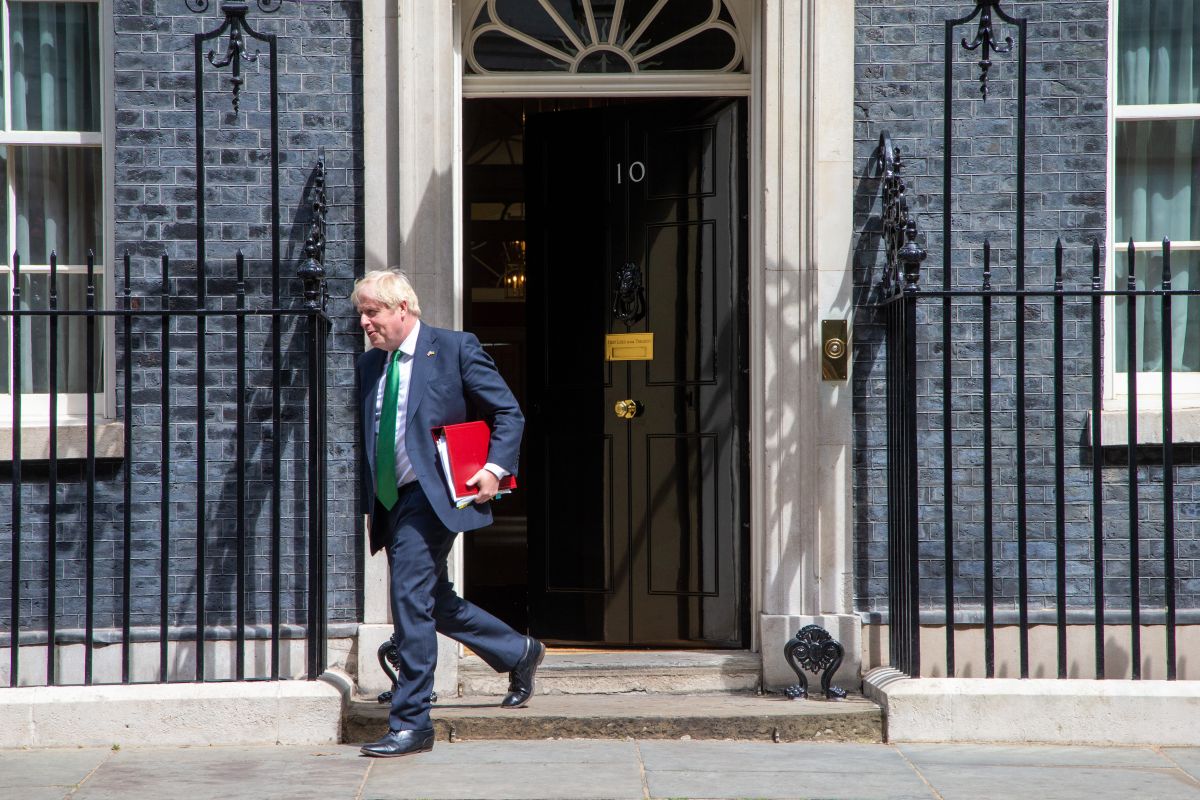Fighting for Johnson's Heritage -The Election of a New Tory Leader
On 11 July, the Conservative Party announced the rules for electing a new leader. This is a consequence of Boris Johnson’s resignation from the leadership of the party (7 July). The new leader will be announced on 5 September and then appointed British prime minister by the queen. The election will affect, among others, the model of EU-UK relations after Brexit and British policy towards the war in Ukraine. The new prime minister will announce their government’s agenda at the 2022 Conservative Party Conference one month later.
 Tayfun Salci/ Zuma Press/ FORUM
Tayfun Salci/ Zuma Press/ FORUM
Why did Boris Johnson resign as leader of the Conservative Party and prime minister?
The reason for his resignation from both functions was the loss of trust of parliamentarians and members of the Conservative Party. This was due to the prime minister’s mistakes in managing the government’s work (including the failure to appoint a new strategic advisor after sacking the original one in November 2020), numerous scandals concerning the prime minister and/or his closest associates, including breaches of social distancing rules during the COVID-19 pandemic, as well as the accusations against Chris Pincher (government’s Deputy Chief Whip) of sexual harassment. Johnson’s changing and false statements about the latter incident prompted dozens of members of his government to resign from their positions. This was the immediate cause of Johnson’s resignation. The weakening position of the prime minister was demonstrated by his poor result amongst conservative MPs in the vote of confidence in him, which he nominally won on 27 June. Johnson will, however, remain caretaker prime minister until a successor is appointed.
What is the process of selecting a new Tory leader?
The election takes place in two stages, focused on Conservative MPs and party members, respectively. In light of the party rules amended on 11 July, the first stage will end before the summer recess (21 July) and the second before the parliament sits again (5 September). Leadership candidates were required to obtain 20 sponsoring MPs. This threshold was met by eight out of 11 Tories who publicly declared an interest in running. In the first ballot (13 July), the candidates had to win the support of at least 30 MPs, and in subsequent ones the person with the weakest result will be eliminated until only two remain. During the parliamentary recess there will be numerous meetings between the two final candidates and voters (about 150,000 party members). Notably, the views and preferences of party members are more right-wing and pro-Brexit than that of the MPs, which may have an impact on the final choice. The new leader will be announced on 5 September and will immediately receive a royal appointment as prime minister and present the agenda of the new government at the 2022 Conservative Party Conference (2-5 October).
What are the factions in the Conservative Party and how can this affect the election of a new leader?
The elections launched the most significant debate among the Tories about the party’s programme since 2005, due to the dominance of Brexit in the 2016 and 2019 selections. There are at least five ideological groups in the party, most of which are divided into factions based on personal ties. In the last decade, the highest level of discipline and determination was shown by the pro-Brexit right wing, which also joined in the public debates over ideological (especially transgender issues) and immigration. Johnson’s pro-Brexit but socially liberal and populist group remains a visible force. Another group is the fiscally conservative and moderately socially conservative Thatcherites. In turn, former members of the armed forces emphasise the issues of sovereignty, investment in defence, transatlanticism, and assertiveness towards China and Russia. The centre-left wing (One-Nation Conservatives) is characterised by criticism of (a hard) Brexit, social liberalism, and acceptance of the welfare state. The worldview of party members favours candidates with a more right-wing agenda, but the dispersion of forces between the factions does not make it possible to unequivocally assess who will be the final two candidates.
Who is running for head of the Conservative Party?
The favourite of party members is the pro-Brexit centrist Penny Mordaunt (minister for trade, former defence secretary in 2019 and a Royal Navy reservist), while the party establishment and MPs are favouring the moderately pro-Brexit Rishi Sunak (chancellor of the Exchequer in 2020-22). The right wing is represented by Kemi Badenoch (minister of state for Equalities), Suella Braverman (attorney general for England and Wales), and Liz Truss (foreign, commonwealth and development secretary), with the first two highly popular with party members and the latter with MPs. Nadim Zahawi (former education secretary and chancellor of the Exchequer from 5 July), Jeremy Hunt (former secretary of state in different departments between 2010 and 2019, including the FCO), and Tom Tugendhat (chair of the House of Commons Foreign Affairs Committee and a former lieutenant colonel in military intelligence) represent the centre of the party or its wing. Most of the candidates represent a new generation of political leaders, and with the exception of Truss, Sunak, and Hunt, they do not have long-standing experience in top government positions. Half of the candidates are of an ethnic minority.
What do the elections in the Conservative Party mean for British politics and relations with Poland?
The key to the election campaign is fiscal and economic policy. The model adopted after the election will affect Britain’s ability to pursue an active foreign policy (e.g., strengthen its presence in the Indo-Pacific), intensify re-armament, and other major issues. Although there is consensus around the British political support for Ukraine, which is key from the point of view of Poland’s interests, the question of the scale of the material aid provided to this country remains open. The candidates’ platforms also confirm the irreversibility of the UK’s withdrawal from the EU, but at the same time indicate a range of possible attitudes regarding the model of UK-EU relations. A victory for the right wing would mean the continuation of the dispute over the Northern Ireland Protocol and the possibility of its unilateral amendment by an act already introduced to the British parliament. In turn, the victory of a centrist or left-wing candidate would herald a chance for closer cooperation with the EU, but also for the “Europeanisation” of British policy regarding the Russian aggression against Ukraine.


